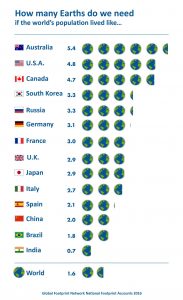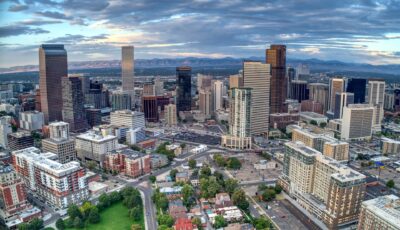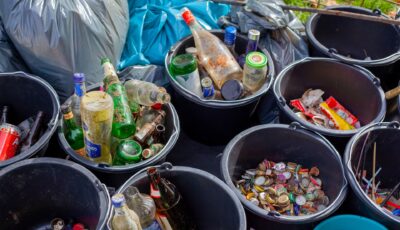Earth’s resources depleted for 2016

TORONTO, Aug. 4, 2016 – As of Monday, Aug. 8, humanity will have already used up more resources than the Earth can regenerate this year, according to the Global Footprint Network.
The network, a WWF partner, declared Aug. 8, 2016 as this year’s Earth Overshoot Day, which is five days earlier than last year and the earliest Overshoot day yet.
As the global population grows and consumption rises, we are emitting more carbon dioxide into the atmosphere than our oceans and forests can absorb, and we are depleting fisheries and harvesting forests more quickly than they can reproduce and regrow. To sustain our global consumption at this level would take 1.6 Earths.
When the first Earth Overshoot Day was calculated in 1987, it fell on Dec. 19. In 2000, the Earth’s renewable resources for the year were used up by late September. An ecological overshoot is possible only for a limited time before ecosystems begin to degrade and risk collapse.
How does Canada rank?
- Canada has the fourth highest ecological footprint per person, after only Luxembourg, Australia and the United States.
- If everyone on Earth lived as Canadians do, it would take 4.7 Earths to sustain global consumption.
- Canada has the 12th highest total ecological footprint.
- The carbon footprint makes up 61% of Canada’s overall ecological footprint.
- Canada is so rich in resources, however, that it takes only half the country’s resources to sustain the national population.
- Canada has the 6th highest total biocapacity and the the 4th highest biocapacity per capita.
- Canada has the 2nd highest overall fishing biocapacity, and the highest fishing biocapacity per capita, despite the near total collapse in 1992 of the Newfoundland cod population and the troubles highlighted this week with forage fish.
 “Canada is fortunate to still have an abundance of renewable natural riches, when much of the world no longer does.” says David Miller, president and CEO of WWF-Canada.
“Canada is fortunate to still have an abundance of renewable natural riches, when much of the world no longer does.” says David Miller, president and CEO of WWF-Canada.
“It’s vital that we take care of these resources now so they can continue to take care of us in the future. That’s why WWF-Canada works to build solutions to ensure people and nature thrive together.”
Images, graphics, interactives, raw data and further resources available at wwf.ca/overshoot







